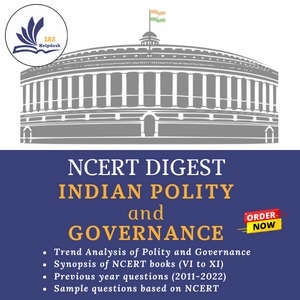Citizen's Charter
Description
Citizen's charter
Introduction:
• Citizen Charter is a document which represents a systematic effort to focus on the commitment of the Organisation towards its Citizens in respects of Standard of Services, Information, Choice and Consultation, Non-discrimination and Accessibility, Grievance Redress, Courtesy and Value for Money. This also includes expectations of the Organisation from the Citizen for fulfilling the commitment of the Organisation.
• Department of Administrative Reforms and Public Grievances, in the Ministry of Personnel, Public Grievances and Pensions, Government of India, in its efforts to provide more responsive and citizen-friendly governance coordinates the efforts to formulate and operationalise Citizens' Charters.
• Citizen’s Charter initiative not only covers the Central Government Ministries/ Departments/ Organisations but also the Departments/ Agencies of State Governments and UT Administrations. Various Departments/ Agencies of many State Governments and UT Administrations have brought out their Charters.
Who is a ‘Citizen’ with reference to Citizen’s Charter?
The term ‘Citizen’ in the Citizen’s Charter implies the clients or customers whose interests and values are addressed by the Citizen’s Charter and, therefore, includes not only the citizens but also all the stakeholders, i.e., citizens, customers, clients, users, beneficiaries, other Ministries/ Departments/ Organisations, State Governments, UT Administrations etc.
Whether Citizen’s Charter is legally enforceable?
No. The Citizen’s Charter is not legally enforceable and, therefore, is non-justiciable. However, it is a tool for facilitating the delivery of services to citizens with specified standards, quality and time frame etc. with commitments from the Organisation and its clients.
The components of a Citizen’s Charter:
• Vision and Mission Statement of the Organisation.
• Details of Business transacted by the Organisation.
• Details of ‘Citizens’ or ‘Clients’.
• Statement of services including standards, quality, time frame etc. provided to each Citizen/ Client group separately and how/ where to get the services.
• Details of Grievance Redress Mechanism and how to access it.
• Expectations from the ‘Citizens’ or ‘Clients’.
• Additional commitments such as compensation in the event of failure of service delivery.
Citizen Charter is Applicable to:
• Constitutional bodies.
• Statutory authorities.
• Public-private partnerships.
• NGOs substantially funded by the government and companies that provide services under a statutory obligation.
Problems faced in implementing the Citizen’s charters:
• Lack of awareness and knowledge.
• Loss of trust among service seekers.
• Lack of infrastructure and initiative.
• Lack of motivation and accountability.
• Complicated and restrictive rules & procedures.

